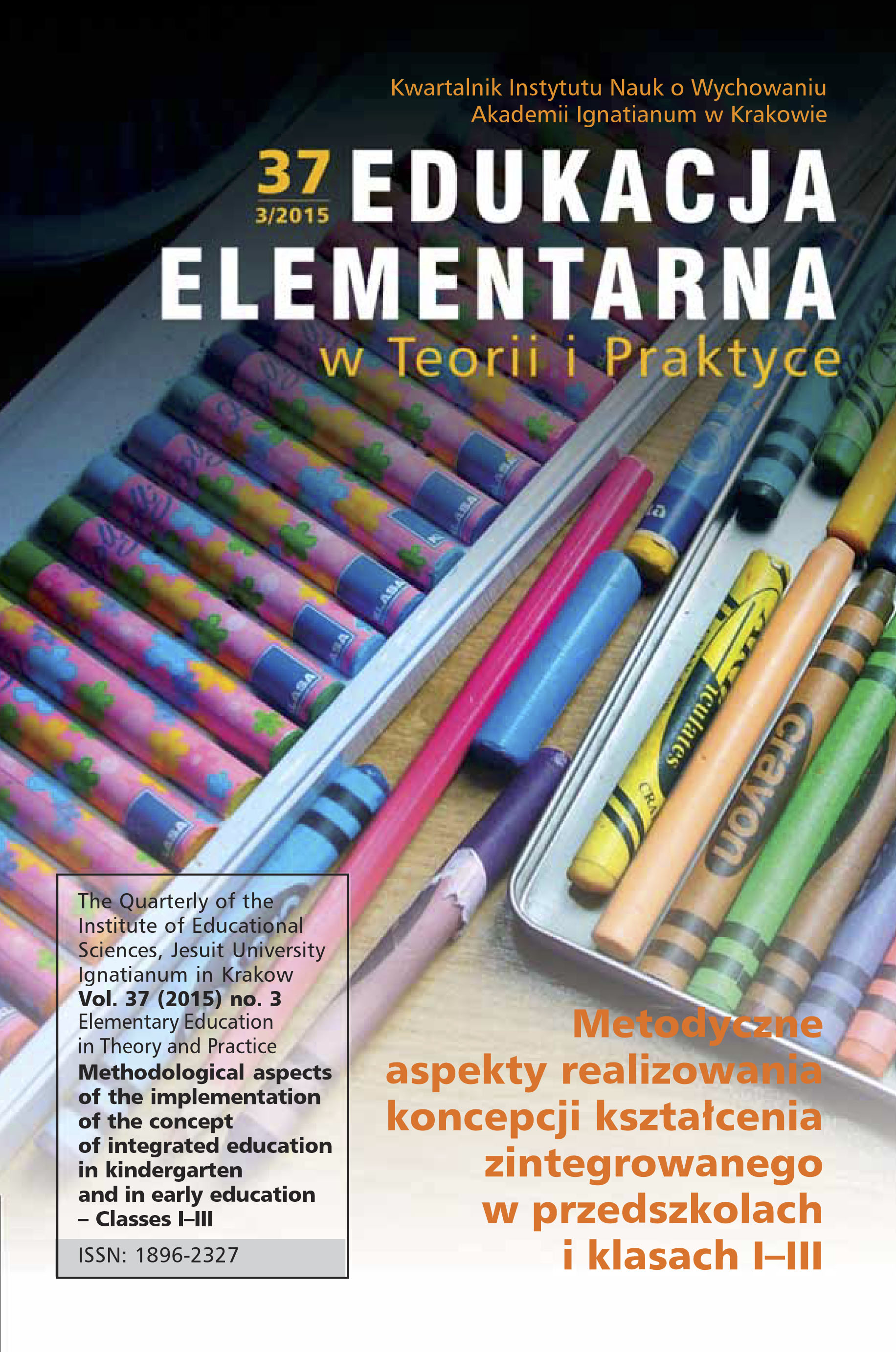Znaczenie aktywności i metod aktywizujących w edukacji zintegrowanej
The Importance of Activity and Activating Methods in Integrative Education
Author(s): Katarzyna Dmitruk-SierocińskaSubject(s): Social Sciences, Education
Published by: Uniwersytet Ignatianum w Krakowie
Keywords: early-school pedagogy; early-childhood education; activity; education; activating methods and techniques; child development; stimulation of development
Summary/Abstract: This article focuses on the role and importance of pupil activity during early childhood education, and on the use of activating methods in the educational process. The usefulness of these methods in school practice is clear, because it is widely known that learning by doing brings the best results in the first school years. By using such methods during classes, we contribute, among other things, to the independence of children as regards thinking, putting forward proposals, decision-making, planning and searching for other non-standard solutions. We provide them with a chance to deepen their knowledge, drawing on different sources of information. During their work in the classroom or in the field, pupils must sympathize and cooperate with one another, presenting their own ideas and treating the proposals of others with due respect. They cannot afford to be afraid of independence, hard and difficult work, and responsibility. This approach, based on creative activity, maximizes the opportunities for the child's development. In such a situation, the focus of the curriculum shifts to the pupil as a person. The teacher is supposed to assist the pupil by creating opportunities for gaining new experience, for commitment, for self-reflection and for preparing a plan of action. The teacher must be aware that the choice of activating methods should contribute to an increase in knowledge, skills and habits, as well as to changes (at least in a widely construed sense) to the actual personality of the pupil. Therefore, the activity and activation of pupils should be the focus for the teacher. Awareness, knowledge and commitment contribute to the perception of the pupil as a unique link, playing an active role in the implementation of tasks. The hope is that such pupils will make use of the experience gained thus during classes in their subsequent activities.
Journal: Edukacja Elementarna w Teorii i Praktyce
- Issue Year: 10/2015
- Issue No: 3 (37)
- Page Range: 29-40
- Page Count: 12
- Language: Polish

